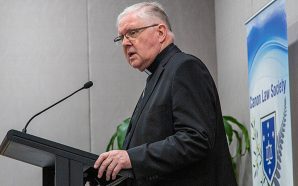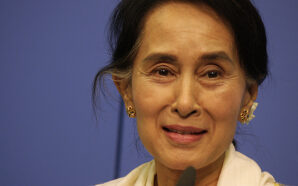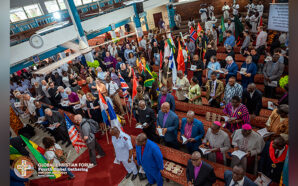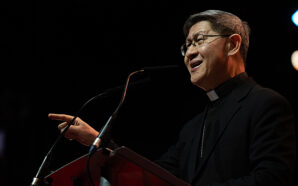Pope Francis invited young economists from around the world to meet and reflect on how to “change the current economy and give a soul to the economy of tomorrow.” He invited to participate in this broad, shared discernment, all those who today are beginning to study and practice an economics that is different from the one he rejected in the first chapter of his encyclical, Fratelli Tutti.
What is needed, he says, is “an economy that gives life and does not kill, includes and does not exclude, humanises and does not dehumanise, takes care of creation and does not plunder it.”[1] The event, from November 19 to 21, 2020, held online because of COVID-19, was promoted by the diocese and the town of Assisi, the Seraphic Institute of Assisi and the Economy of Communion (EoC).
What characteristics should an economy have that is capable of listening to “the cry of the earth and the poor”? If we want the “Economy of Francesco” not to become an empty slogan, young economists, believers or not, must courageously face the problems that concern their discipline.
In the following pages we will recall, first of all, that economics is necessarily based on numbers, and that any change in the economic paradigm requires a realignment, on the part of young economists, of these numbers and of all the data at our disposal. Then we will show that some major principles dear to Pope Francis are also excellent guidelines for reforming the world economy. Finally, we will present the concrete example of an initiative that illustrates the spirit of discernment to which the pope invites us.
The observations that follow are not intended to replace this collective discernment, but, on the contrary, to call attention to some fundamental points that are necessary to help all of us in this spiritual experience.
Poverty and inequality
“Inequality is the root of social ills” (Evangelii Gaudium [EG], No. 202). It is from this statement that any reflection leading to a different economy must start. “The world is rich and yet the poor are growing around us. According to official reports this year’s world income will be $12,000 per person, However, hundreds of millions of people are still mired in extreme poverty lacking adequate and essential food, housing, health care, schools, electricity, clean water and sanitation.”[2]
These situations have caused heated discussions. At the Davos Forum, for example, in January 2019, several participants argued that the number of “poor” people had declined in recent decades and issued a vibrant call in support of market globalisation – a position that Pope Francis promptly criticised. The debate and animated discussions partially arise because of the different criteria used to assess poverty.
Even if we were to restrict the discussion to monetary poverty, which is already very limiting, since it is not the only dimension of human existence that should be taken into account, the conventional poverty line (equivalent to the purchasing power of $1.90 per day in the United States in 2011) is unacceptable: all evidence shows that living on an average of $2 per day means being exposed to malnutrition, poor education and a very high mortality rate. Many economists support the call for an increase of that threshold to $7.40 per day.[3] But even if that were the case, the number of people living on less than $7.40 a day has increased dramatically since the 1980s, to a total of 4.2 billion people today. Moreover, all of the data that has shown an improvement in this situation can be attributed to China and owes nothing to the “Washington Consensus.”[4]
A heated debate is also underway on the subject of inequality.[5] The Gini index, between 0 and 1, measures income inequality: the higher it is, the more unequal the society. Measured against this index, income inequality in the world has fallen, according to the World Bank, from 0.63 in 1960 to 0.47 in 2013.[6] Due to the various factors taken into account, this analysis should be treated with some scepticism. Indeed, such a reduction in inequality between nations is consistent with rising inequality within almost every country. And the explosion of inequality within each country is now a very well documented phenomenon.[7]
Second, most of that improvement is due to China and, to a lesser extent, India: if we were to calculate the global Gini index excluding China, we would find that there has been a shift from 0.50 in 1980 to 0.58 in 2005.
Third, the Gini index considered so far is relative. People’s perceptions of inequality are more sensitive to absolute inequalities than to relative differences. There is, in fact, also a Gini index that measures absolute differences in wealth; but the worldwide “absolute Gini” has risen from 0.57 in 1988, to 0.72 in 2005, despite the progress made by Beijing. In other words, we are not experiencing a convergence that heralds the arrival of a more equitable world society, but the opposite.
We mention these absurd polemics to remind ourselves that too often economic reflection is the monopoly of experts who engage in discussions from which most citizens feel excluded. The questions posed by Pope Francis make us realise that more often than not, superficial “expertise” distances us from common sense. This is a particularly delicate subject when it comes to constructing and interpreting the data with which economists and decision-makers work. One need only think of their lack of reliability in analyses concerning the African continent.[8] Indeed, great efforts are needed if we want the economy to be at the service of the common good.
Pope Francis has criticised the trickle-down theory, according to which increasing the wealth of a few would benefit all. This theory is empirically invalidated, as we have just seen, nor is it supported by analytical foundations.[9] It argues that increasing wealth at the top of the social pyramid facilitates saving, hence investment, hence growth, and hence wealth for all. All these assumptions are false, because it is not savings that finance investment, but the creation of credit by the banking sector.[10]
It was to this power of monetary creation that Pius XI’s 1931 encyclical Quadragesimo Anno referred, foreseeing the need for regulation of this process. This call has been reiterated recently by the Dicastery for the Service of Integral Human Development.[11] Today, most savings are invested in the financial markets or in real estate, thus fuelling two speculative bubbles that play a decisive role in exacerbating inequality and accelerating the gentrification of metropolises.[12]
Secondly, GDP growth not only does not imply a reduction in poverty, but has not necessarily coincided, for at least 30 years, with the creation of new jobs. We have succeeded in inventing “growth without work” or growth accompanied by jobs so precarious that even in Europe a new category has appeared: that of the poor worker who, at the end of the month, is obliged to eat at the soup kitchen.
Pope Francis’ questions to the community of economists, financiers and entrepreneurs demand deep reflection from us at a time when conventional economics is in crisis. As Nobel Prize-winning economist Paul Romer has written, over the past three decades we have witnessed an “intellectual regression” in macroeconomics.[13] The former World Bank chief economist refers to “post-real models” to describe the tools used by most economists in major international institutions.
Similarly, Olivier Blanchard, shortly after leaving his post as chief economist of the International Monetary Fund, wrote that the DSGE models – the most commonly used until recently – are “decidedly false.”[14] The models we most often use do not include money, ignore the existence of debt, postulate that unemployment is voluntary, and assume that wealth can be produced without energy. Such models obviously failed to predict the great financial crisis that occurred in 2008 and continue to provide fanciful predictions about the real impact of global warming and the collapse of biodiversity. Some economists even conclude that “a century of climate change is probably no worse than the loss of a decade of economic growth,” and thus that “there are problems facing humankind that are bigger than climate change.”[15]
These statements and the analysis that accompanies them are at odds with Francis’ encyclical Laudato Si’ and the deeper aspirations of the “Greta Thunberg generation.” Indeed, one might say that most conventional economists are an obstacle to the ecological and social reconstruction of our societies.
‘Everything is connected’
If young people want to rebuild an economy that helps us understand the real world from a perspective of reorientation toward the “common good and social peace” (cf. EG 217-237), the four principles enunciated by the pope in Evangelii Gaudium can serve as an interesting source of inspiration.[16]
First, one should consider the principle “the whole is greater than the part” (cf. EG 234-237). This means that the common good of the whole world cannot be reduced to defending the interests of a few, and that therefore, at the level of the “whole”, events can occur that cannot be deduced from the “part.” In economics, the interactions of millions of actors produce aggregate effects on prices, demand and supply every day, which cannot be deduced from the behaviour of an individual. Taking the complexity of the real world seriously requires an awareness that new and unexpected phenomena can occur, and this happens in economics as in all other sciences.
Yet the conventional economics program called “methodological individualism” that is taught in universities around the world, opposes this view and continues to act as if the whole were strictly nothing more than the sum of the parts. Many of our models continue to provide the absurd assumption that our economies are populated by individual consumers or individual firms, which makes it impossible, for example, to study private debt rigorously, when it plays a decisive role in the deflationary depression we are experiencing today.
Second, the principle “time is superior to space” (cf. EG 222-225). To be envisaged as a goal, the common good requires time, discernment and dialogue. This means that the short term imposed by financial markets cannot be a legitimate horizon for economic decision-making. Ecological transition, in particular, requires investment over several decades. To honour time, financial markets must be regulated so that the state and investors look to a longer term horizon.
Pope Francis’ insight also means that time, as such, is a key element in any economic decision. Yet most of our economic reasoning is based on the fiction of a static equilibrium, and no serious unbalanced dynamics are involved. In this respect, economics lags more than a century behind all other scientific disciplines, which take nonlinear dynamics into account in their analyses. However, this is not the case in conventional economics, which prefers to believe that markets perfectly anticipate the future, so that the future would be entirely deducible from the present. In such a view, time no longer counts.
Third, “unity prevails over conflict” (cf. EG 226-230). By affirming this principle, Pope Francis wants to invite us to always seek the unity of the Church and, more generally, of our social bodies, without neglecting diversity.
However, a certain economic ideology has placed the competition of “all against all” at the centre of social interaction For such an ideology, finding a spouse, choosing a profession, establishing residence in one city rather than another, are all fundamental decisions that should be governed by the “game” of competition, by the law of supply and demand. This is tantamount to placing the exacerbation of conflict at the centre of the social fabric.
Even the concept of perfect competition is problematic in itself,[17] and the virtues attributed to the invisible hand of markets are illusions.[18] If the “hand of the market” is invisible, it is because it does not exist. This ideology purporting to explain the market is nothing more than a secularised application of the Christian theology of providence, but an erroneous application: the mystery of divine providence has never meant that we can exploit the poorest, telling them that they need not worry, because an “invisible” force will take care of them. At the centre of the social bond must not be competition, but solidarity and fidelity to commitments, without which no institution is possible. Within the theory of “games,” cooperative ones are more important and relevant than non-cooperative ones.[19]
Rather than an atomised anthropology, it is the vision of the human person as a “being-in-relationship” that must be placed at the centre of our economies.[20] The triumphalist idea of homo œconomicus belongs to another era; it goes back to the Vitruvian man: man is thought of as an adult male, white and healthy, isolated from the rest of the world, endowed with technical knowledge that allows him to conceive himself to be in absolute metaphysical solitude.
This anthropological idea must be replaced by the concept – deeply biblical and promoted by Francis’ encyclicals Laudato Si’ and Fratelli Tutti – of women and men in relation to each other, to generations and to creation. It is an anthropological vision that includes issues of justice, because the economy is also a moral discipline.[21] What is needed is an economy attentive to a future that is not written with “rational expectations” – the illusion of private actors who perfectly anticipate the future! – but one that we can and must build together, being willing to renounce our idols. Who will be able to build an economy based on these foundations?
Fourth, “reality is more important than the idea” (cf. EG 231-233). One of the biggest problems with conventional economics is that it is based on models that ignore material reality. It is time for economics to seriously consider, for example, disruptions to the water cycle. According to the World Resources Institute, by 2040 Italy may not have more than 80% of its current supply of drinking water (like Spain, the Maghreb, South Africa, the Andes, Indonesia, etc.), while in the second half of this century rising temperatures may cause hyperthermia (abnormally high temperature) that could make parts of the Italian peninsula uninhabitable. The same applies to the tropics of the three main continents. The issue of public debt is much less serious than that of lack of natural resources, because, if Italians were forced to abandon the peninsula for lack of water and excessive heat, one thing would be certain: no one would repay the Italian debt.
It is time for economic theory to also take seriously the scarcity of non-renewable mineral resources. So, in collaboration with a team of geophysicists, we have shown that copper could reach its peak of worldwide extraction as early as 2060.[22] This is a figure that should seriously concern us, because the infrastructure associated with processing renewable energy consumes far more copper than the infrastructure that enables the extraction of fossil hydrocarbons. Therefore, it is essential that our societies quickly learn to make careful use of copper and all the other minerals that will start to become scarce in the near future. Unfortunately, there are still very few economists advising their governments on these issues.
Finally, one last major principle dear to Pope Francis could henceforth serve as a guiding criterion for the reconstruction of economics. It is: “Everything is connected.” Economics can no longer be practiced as a discipline isolated from other academic disciplines: it must listen to ethics, sociology, history, law and political science, as well as physics, biology, and even theology. Why this last? Because economics cannot be separated from law, and because Western law is the product of the interweaving of Roman law with Christian theology that took place during the Gregorian revolution in the 11th Century. Contemporary economics is the secularisation of a bad theology, confused with John Locke’s political philosophy: its philosophical and theological presuppositions must therefore be questioned.
That is why collective discernment is needed more than ever. To contribute to this discernment, we will now examine a concrete example of an initiative launched by young Brazilian economists, which prefigures the economy we must promote and want to promote.
The Woman Mother Earth Alliance
In response to Pope Francis’ call to inaugurate new economies, a global alliance was promoted in the Agriculture and Justice Village – one of 12 groups created as part of The Economy of Francesco initiative[23] – to enable women’s access to the land so that it fully realises its vocation to be biodiverse and promotes good living for all communities around the world.
Pope Francis’ call for global solidarity and commitment to fighting inequality was answered by more than 2,000 young people from all over the world. As mentioned, the spread of the pandemic forced a change in the calendar, with a first virtual meeting held in November 2020, and a final plenary meeting to be held, again in Assisi, in November 2021.
Among the many projects developed as a synthesis of the aspirations for change emerging from Brazil and Latin America, one, in particular, deserves our attention: the Woman Mother Earth Alliance. In this project, Brazil has become a point of reference above all for the social articulation built around the initiative, “The Economy of Francis and Clare” (including St. Clare, thus testifying to the fact that the feminine dimension is structurally important in rethinking the future of the world). More than others, young Brazilians were able to elaborate a critical insight that also embraced the “feminine dimension of the economy” and to establish a network of relationships that attracted young people from a variety of villages and other countries in South America.
The Woman Mother Earth Alliance seeks to offer concrete responses to the demand for “Land, Roof and Work”[24] for women in rural areas of Brazil and elsewhere in the world; to defend their right of access[25] to genetic resources; and to build equitable relationships around the production, trade and consumption of healthy food.
This path is articulated on two main levels: 1) the strengthening of a global agenda to defend the right to land, the sovereignty over genetic resources and the overcoming of inequalities that limit the full development of women’s capacities; 2) the building of local alliances for the production and marketing of food.
This agenda is intended to be a process of discernment, in which time plays a predominant role. The Woman Mother Earth Alliance takes up the agenda agreed upon in 2014 by representatives of the World Popular Movements – including the Movements for New Economies – centred on the three pillars: “Land, Roof and Work,” with the desire to strengthen the commitments made back then.
Globally, gender inequality is one of the biggest obstacles to sustainable development and poverty reduction, as was indicated in the Sustainable Development Goals drafted by the UN on September 25, 2015. The fifth goal is “to achieve gender equality and empower all women and girls.” The Woman Mother Earth Alliance project is therefore configured as an intervention that can help achieve this goal, with a focus on women’s empowerment and their access to land, as well as the recognition of their economic, ecological and social role, which is essential within local farming communities: cooperation instead of a chauvinist war of the sexes.
At the international level, the Alliance is planning to participate in a series of events that are being prepared: on the one hand, the Generation Equality Forum,[26] organised by UN Women, in which a program of concrete measures to achieve equality between women and men by 2030 will be presented; on the other hand, the next World Forum for Access to Land, which various organisations involved in the struggle for access to land are organising following the previous meeting in Valencia in 2016.[27] This initiative would also be proposed to other major players on the world stage, sensitive to these issues: UN agencies (FAO, OHCHR), farmer organisations from the Catholic world (FOCSIV, CIDSE) or international ones (LVC).
This international agenda is also based on a set of local actions linked to food production, processing, marketing, consumption and disposal. Many of these initiatives are already taking place, and should be understood as stimuli toward the construction of a new agri-food system. They are based on the fundamental premise of shortening the marketing circuits through networked actors and sustainable and solidarity-based solutions already existing in the territories, integrated, increased and pushed toward new solutions, starting from “The Economy of Francis and Clare.”
Why this special focus on women? They are primarily responsible for promoting food sovereignty. It is they who do most of the work of protecting local agriculture, cultivating gardens and medicinal plants and managing domesticated animals. Yet rural women and their children are among the social actors most affected by hunger. According to the Synthesis of Social Indicators published in 2019 by IBGE,[28] women have greater difficulty entering employment and remaining employed; they have lower incomes and are more likely to be in casual work than men.
This very labour – the basis of production and social reproduction of families and society at large – is invisible, because it is not monetised. This is one of the reasons for the higher incidence of poverty among women, especially those of colour. According to the same IBGE data, in 2018 the percentage of black or mulatto women in households with poverty incidence was 33.5%, while for white men it was only 15.6%.[29]
Another relevant aspect concerns the way of producing food and preserving life, socio-biodiversity and genetic resources: “Everything is connected.” Historically excluded from the process of agricultural modernisation, rural women have remained the main custodians of local agriculture and traditional production techniques in harmony with the environment. Their contribution therefore goes beyond the promotion of food production and extends to water and energy management, and in particular to the conservation of the genetic resources of territories.
Barriers to access to land and the means of production and marketing are among the main reasons for women’s subordinate position in our societies. In several countries of the Global South, access to land is a right formally denied to women. In countries where they can legally own land, women are systematically hindered. This is evident from difficulties in obtaining credit for production and land acquisition to discrimination in inheritance, land registries and public land access policies that often ignore them as owners in the case of agrarian reforms and other interventions supporting land acquisition.
Needless to say, these issues – gender inequality, biodiversity conservation, difficulty of access to bank credit and land ownership, food sovereignty – are elements largely neglected by the models of analysis used by conventional economists. But “reality is more important than the idea.”
The strength and will of the young people of The Economy of Francis and Clare, and many others who will join the group, lies in their questioning of current economic arrangements and their ability to promote and articulate global and local efforts to reverse the historical and structural inequalities that are affecting women’s lives and impacting everyone in the Common Home. Under the leadership of Pope Francis and in response to his call, this enormous challenge seems to have great potential.[30]
Reproduced with permission of La Civiltà Cattolica.
DOI: La Civiltà Cattolica, En. Ed. Vol. 5, no. 1 art. 6, 1020: 10.32009/22072446.0121.6
[1]. Francis, “Video Message to Participants in the Meeting ‘The Economy of Francesco – Young People, a Commitment, the Future’”, November 21, 2020, in https://francescoeconomy.org
[2]. Francis, “Address to Participants at the Workshop ‘New Forms of Fraternity, Inclusion, Integration, and Innovation,’” Casina Pio IV, February 5, 2020, in vatican.va
[3]. Economist Lant Pritchett assumes a threshold of $10. See L. Pritchett, “The World Bank Progresses on Poverty Lines”, at www.cgdev.org/blog/world-bank-progresses-poverty-lines
[4]. The Washington Consensus refers to the economic policies imposed on debtor countries by the institutions created by the Bretton Woods agreements (International Monetary Fund, World Bank).
[5]. Cf. G. Giraud – F. Koerreales – C. Poggi, “Les inégalités dans le monde: où en est-on”, in Études 165 (2019/1).
[6]. Cf. B. Milanović, Global Inequality: A New Approach for the Age of Globalization, Cambridge, Harvard University Press, 2016.
[7]. Even today, the best database on inequality is the World Income Inequality Database (Wiid, Denmark): see www.wider.unu.edu/project/wiid-world-income-inequality-database/. See also J. Choi et al., “A Comparison of Major World Inequality Data Sets: LIS, OECD, EU-SILC, WDI and EHII”, in L. Cappellari – S. Polachek – K. Tatsiramos (eds), Income Inequality Around the World, Bradford, Emerald Group Publishing Limited, 2016, 1-48.
[8]. Cf. M. Jerven, Poor Numbers: How We Are Misled by African Development Statistics and What to Do about It, New York, Cornell University Press, 2013.
[9]. Cf. International Monetary Fund, “Causes and Consequences of Income Inequality: A Global Perspective”, June 1, 2015, in www.imf.org/sdn/sdn1513
[10]. Cf. G. Giraud, Transizione ecologica. La finanza a servizio della nuova frontiera, Verona, Emi, 2015.
[11]. Cf. Congregation for the Doctrine of the Faith – Dicastery for the Service of Integral Human Development, Œconomicae et pecuniariae quaestiones. Considerations for a discernment about some aspects of the current economic-financial system, January 6, 2018, in www.vatican.va/congregations/cfaith/documents
[12]. Gentrification is the transformation of working-class neighborhoods into prime housing areas.
[13]. Cf. P. Romer, “The Trouble With Macroeconomics”, in https://paulromer.net/the-trouble-with-macro
[14]. Cf. O. Blanchard, “Do DSGE Models Have a Future?”, in Peterson Institute for International Economics – Policy Brief, November 16, 2016.
[15]. R. Tol, “The Economic Impacts of Climate Change”, in Review of Environmental Economics and Policy 12 (2018/1) 6. Cf. M. Woillez et al., “Economic impacts of a glacial period: a thought experiment to assess the disconnect between econometrics and climate sciences”, in Earth System Dynamics 11 (2020/4) 1-14.
[16]. Cf. L. Taylor, Reconstructing Macroeconomics. Structuralist Proposals and Critiques of the Mainstream, Cambridge (Ma), Harvard University Press, 2004; E. Bovari et al., “Coping With Collapse: A Stock-Flow Consistent Monetary Macrodynamic of Global Warming”, in Ecological Economics, No. 147, 2018, 383-398. The Institute for New Economic Thinking (INET) is a network undertaking interesting initiatives in this field.
[17]. Cf. A. Mas-Colell – W. Hildebrand, The Cournotian foundations of Walrasian equilibrium theory: an exposition of recent theory, Cambridge, Cambridge University Press, 1983; G. Giraud, “Strategic market games: an introduction”, in Journal of Mathematical Economics, No. 39, 2003, 355-375.
[18]. Cf. G. Giraud – A. Pottier, “Debt-Deflation versus the Liquidity Trap: the Dilemma of Nonconventional Monetary Policy”, in Economic Theory, No. 62, 2016, 383-408.
[19]. Cf. G. Giraud, La théorie des jeux, Paris, Flammarion, 2000.
[20]. See for example H. L’Huillier et al., “Crisis and relief in the Niger Delta (2012-13): assessment of the effects of a flood on relational capabilities”, in Oxford Development Studies 46 (2017/1) 113-131.
[21]. Cf. G. Giraud, “Why Economics is a Moral Science: Lifting the Veil of Ignorance in the right direction”, in K. Basu – R. Hockett (eds), Law, Economics and Conflict, New York, Cornell University Press, 2020.
[22]. Cf. O. Vidal et al., “Global Trends in Metal Consumption and Supply: The Raw Material-Energy Nexus”, in Elements 13 (2017/5) 319-324.
[23] www.francescoeconomy.org
[24]. Cf. “Terra, tetto, lavoro ed enciclica ‘Fratelli tutti’ in tempo di pandemia: incontro virtuale dei movimenti popolari”, at www.fides.org/news68871
[25]. As required by the Convention on Biological Diversity (CBD) and the International Treaty on Plant Genetic Resources for Food and Agriculture.
[26]. Cf. “Forum Génération Égalité (2021)”, in www.diplomatie.gouv.fr/fr/politique-etrangere-de-la-france/la-france-et-les-nations-unies/forum-generation-egalite-2021
[27]. Cf. “World Forum on Access to Land 2016”, in www.agter.org/bdf/en/thesaurus_dossiers/motcle-dossiers-136.html
[28]. Cf. Instituto Brasileiro de Geografia e Estatística (IBGE), Síntese de Indicadores Sociais. Uma Análise das Condições de Vita da População Brasileira, in www.ibge.gov.br/estatisticas/sociais/saude/9221-sintese-de-indicadores-sociais.html
[29]. Per capita household income of less than $5.50 PPP per day.
[30]. This article was written in collaboration with Andrei Thomaz Oss-Emer, philosopher, MSc Federal University of Pelotas, Brazil; Lea Vidigal, jurist, PhD University of São Paulo, Brazil; Lilian de Pellegrini Elias, PhD economist, State University of Campinas, Brazil; Luiza Dulci, sociologist, PhD Federal Rural University of Rio de Janeiro, Brazil; Valentina Cattivelli, economist, PhD Università Cattolica Piacenza-Milano, coordinator of Villaggio Agricoltura e Giustizia; Elisabetta Basile, economist, PhD Università La Sapienza, Rome, senior member of Villaggio Agricoltura e Giustizia; Paolo Groppo, land tenure specialist FAO (R), senior member of Villaggio Agricoltura e Giustizia.








